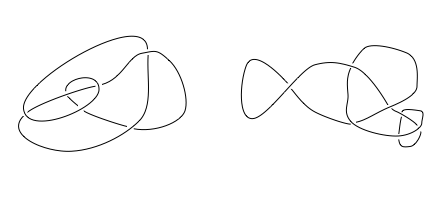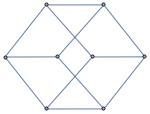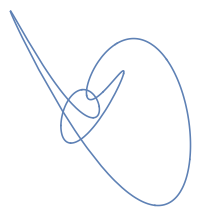Einstein stated that he often explored and reasoned visually and spatially, and only after achieving understanding cast his insights into algebraic form. He could just "see" the answer. There are many mathematicians with extraordinary powers of mental visualization, even if they may not have been superb at symbol manipulation.
I'm interested in bona fide mathematical problems where one can visualize the answer, whether or not one later resorts to algebraic manipulation or proof. Certainly some mathematical disciplines are more amenable to the techniques of visualization (geometry, topology, ...) than others (number theory...). I'm not interested in the myriad problems posed from other fields, such as physics and chemistry, where the core problem is itself geometric, spatial or visual.
I'm interested in collecting problems in different branches of mathematics that are amenable to "purely visual" solution (or at least visual reasoning), even if formal proof may come later. Here are a few that come immediately to mind. I'll add such problems to the other subfields as I come across them. Of course the scale of these problems cannot be excessive (e.g., you cannot present a knot diagram with 1000 crossings and ask a student to visualize whether it is the trivial knot.)
My overall goal is to help students develop their mathematical visualization skills.
Knot theory
- Determining if a knot diagram describes the trivial knot
- Determining if two knots are related by a mirror symmetry
- Determining the number of components from a link diagram
- Assigning colors to segments in a tri-colorable knot diagram
- Determining which crossing can be changed to make a knot trivial
- Determining if a two-component link is separable
- Determining if two knot diagrams describe the same knot, as in this case:

Graph theory
- Determining if a graph (represented with arbitrary vertex locations) is in fact planar, e.g., this one:

Discrete group theory
- Determining if a particular symmetry of group operation transforms one given geometric figure to another
Geometry
- Determining the general shape of the intersection of two solids or surfaces (e.g., a plane and a cone)
- Determining the three-dimensional form (e.g., of a polyhedron) from a planar map of its faces e.g.: Which of these figures can be folded into a cube?

- Imagine a $3 \times 3 \times 3$ cube. Now pierce the cube with a $1 \times 1$ edge-aligned hole at the center of its top face through to the center of its bottom face (like an elevator shaft). Pierce the cube again with a similar shaft between the front and back faces. And yet again between the right and the left faces. How many faces, edges, and vertices does the final figure have? (Do this problem without sketching a figure.)
Number theory
Calculus
Linear algebra
Logic
Differential equations
Dynamical systems
Game theory
Topology
- State the winding number for each region in this figure.

Probability and statistics
Real analysis
Algebraic geometry
Complex analysis
Combinatorics
Fiber bundles and cobordism
Category theory




